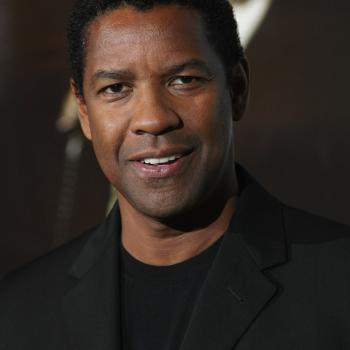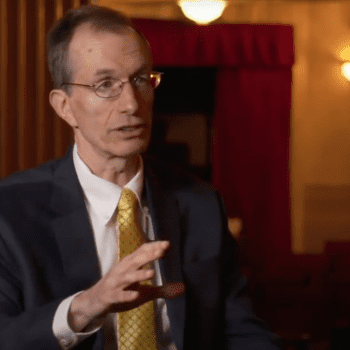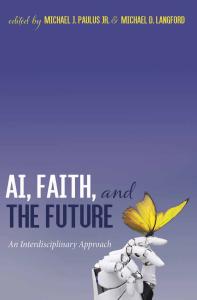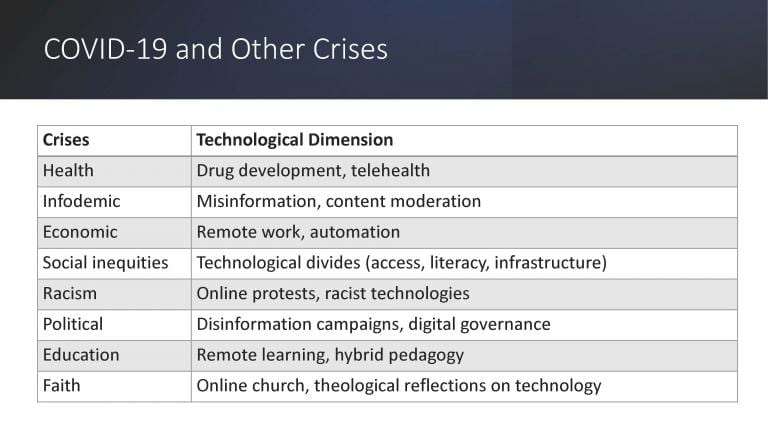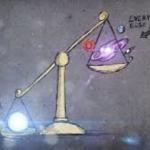Next week, at the American Academy of Religion’s Artificial Intelligence and Religion Seminar, I’m leading a roundtable discussion on AI 2041: Ten Visions for Our Future (Currency, 2021). Below are my introductory comments for the session.
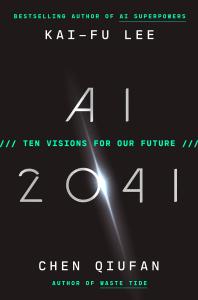
In AI 2041: Ten Visions for Our Future, scientific forecasting and speculative fiction are brought together to imagine the near future of AI. The science fiction writer Chen Qiufan tells ten stories about AI in 2041, which were developed in collaboration with Kai-Fu Lee, an AI expert and entrepreneur, who provides a commentary on each. Overall, these stories explore key AI technologies around the globe—in India, Nigeria, South Korea, China, Japan, Sri Lanka, Germany, the United States, Qatar, and Australia—and highlight major social issues associated with AI in diverse cultural contexts.
Kai-Fu Lee says his intent is to “tell the ‘real’ AI story, in a way that is candid and balanced, but also constructive and hopeful.” He focuses on real and realistic AI, technologies that already exist or can be expected within the next twenty years. Lee’s projected expectations for AI became a map for Chen’s speculative stories of impact, to which Lee adds technological analyses of what each story reveals. Situating himself in a tradition of technological speculation extending back toFrankenstein, Chen points to the continuing challenge for science fiction writers, which he describes as “creating stories that not only reveal hidden truths about our present-day reality, but also, simultaneously, project even wilder imaginative possibilities.” In addition to providing distance for critical reflection, Chen says that, “By imagining the future through science fiction, we may step in, make change, and actively play a role in shaping our reality.”[1]
Lee and Chen share the goal of imagining a desirable future, where the benefits of AI can result in more meaningful and fulfilling lives. They focus on how AI can be good for individuals and society—as well as the challenges that need to be overcome. Lee concludes that AI in 2041 “will open the door to a radiant future for humanity”: “AI will create unbelievable wealth, amplify our capabilities through human-AI symbiosis, improve how we work, play, and communicate, liberate us from routine tasks, and … usher in an age of plentitude.” At the same time, he acknowledges, “AI will bring about myriad challenges and perils: AI biases, security risks, deepfakes, privacy infringements, autonomous weapons, and job displacements.” These challenges are created by humans, Lee points out, and in AI 2041 they are confronted with “human creativity, resourcefulness, tenacity, wisdom, courage, compassion, and love.” In each story, he claims, “our sense of justice, our capacity to learn, our audacity to dream, and our faith in human agency always saved the day.” Lee concludes: “We will not be passive spectators in the story of AI—we are the authors.” And in the future we will author with AI, Lee and Chen imagine we will live comfortable and secure lives, pursue love and self-actualization, and see fear, vanity, and greed decrease. More fundamentally, Lee says, we will “explore what makes us human and what our destiny should be.”[2]
In spite of the clear faith in human agency that runs through AI 2041, religious language, images, practices, and beliefs are conspicuous. This is not surprising, given the spiritual revelation Lee records in his previous book from 2018: AI Superpowers: China, Silicon Valley, and the New World Order. After receiving a severe cancer diagnosis, Lee visited a Buddhist monastery in the south of Taiwan where a monk asked him about his goal in life. Lee answered, “To maximize my impact and change the world.” But he was not very satisfied with his answer. Lee confessed, “This algorithmic way of thinking wasn’t just ‘suboptimal’ at allocating time. It was robing me of my own humanity.” “Seeing my ultimate end point threw my life into sharp focus,” Lee writes, and he began to see that the world “didn’t boil down to inputs, outputs, and optimizations.” He did not want to become an “automaton.” At the end of Superpowers, Lee eloquently pleads for a shared future that synthesizes “AI’s ability to think … coupled with human beings’ ability to love.”[3] Around the same time, Chen began interviewing and shadowing shamans, “in hopes of understanding the rites, rituals, and traditions of China’s Buddhist and Taoist past.” Chen, too, believes much has been lost in our accelerated technological culture—“our relationship to our bodies, to nature, to our roots, to our faiths—and he had set out in search of them.”[4] And so, in AI 2041, Lee and Chen include glimpses of what religion might look like in a world transformed by AI.
[1]Kai-Fu Lee and Chen Qiufan. AI 2041: Ten Visions for Our Future(New York: Currency, 2021), xv, xx–xi. [2]Lee and Chen, AI 2041, 437–38. [3]Kai-Fu Lee, AI Superpowers: China, Silicon Valley, and the New World Order(Boston, MA: Mariner, 2018), 185, 187–88, 190, 193, 196. [4]Yi-Ling Liu, “Sci-Fi Writer or Prophet? The Hyperreal Life of Chen Qiufan,” Wired, March 8, 2021, https://www.wired.com/story/science-fiction-writer-china-chen-qiufan/.





